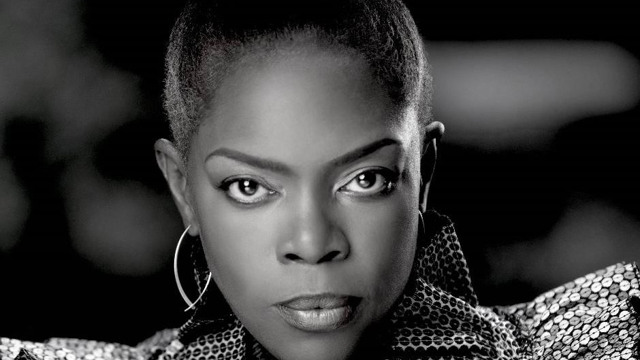Streaming music is a great invention and I would never go back. However, the dissolution of the physical support has deprived us of the possibility of stumbling upon certain coincidences that can only occur in the liner notes of records. In the very thick thank you notes of Grace by Jeff Buckley, his famous first and only album in life, we read a mysterious “I love you Jhelisa A”. And who is this Jhelisa A that he says he loves?
Jhelisa Renee Anderson is a singer from Jackson, Mississippi who recorded her first album, Galactica rushin 1994, the same fateful year Buckley released his Grace. The two knew each other because Jeff, still very young, played guitar on his demos in the mid-eighties. At the time, Jhelisa had just been fired from her job as a receptionist at Motown in Los Angeles and ended up working at Capitol, where she had first met Buckley. Anderson is the daughter of Vicki Anderson, historic vocalist of the James Brown revue – “the best singer I’ve ever worked with” according to Brown himself – and her sister Carleen is also a successful singer: with the Young Disciples she was one of the voices most famous of the London acid jazz scene between the eighties and nineties.
And it is precisely in London that Jhelisa’s career also takes off. In 1989 she signs a contract with the label One Little Indian as vocalist of the band Soul Family Sensation, with which she records I don’t even know if I should call you babya pioneering piece that anticipated by a few months certain solutions that would have made of Unfinished sympathy by Massive Attack and Shara Nelson such a memorable piece. However, Jhelisa finds no peace in a precise style: the London of the early nineties is a much more varied and stimulating musical laboratory than the Los Angeles she has left behind. As vocalist of the rave-pop group The Shamen she achieves two big hits with Phorever people e Lsi (Love sex intelligence): those were the years in which psychedelic and esoteric pop dance songs about extrasensory perceptions, shamanism and, of course, ecstasy as a lock pick to open the doors of perception ended up on the British charts. In those years she also finds the time to be a backing vocalist in several pieces by DebutBjörk’s first album
Esotericism, spiritualism and psychedelia are very close to Jhelisa when she begins to work on Galactica rush, an album that defies any definition. When it comes out, in the wake of the single Friendly pressure, is classified as trip-hop (in the early 1990s anything that wasn’t Brit pop was labeled trip-hop), even though it is actually a nu soul album with many elements of acid jazz, spiritual jazz and hip hop. Jhelisa’s vocality has something religious, both in its obvious gospel origin and in its cosmic and spiritual breath that recalls some of Erykah Badu’s more recent experiments.
The disc opens in a rather unsettling way with the piece that gives the album its title: Jhelisa’s authoritative voice makes its way through improvisations and dissonances that taste like free jazz. We couldn’t be further from the lounge bar trip-hop that was starting to catch on at the time.
There’s nothing wrong straightens the bar and gives us back a seventies groove that closely recalls certain solutions by Me’shell Ndegéocello. Hold my peace moves into progressive hip hop territory; it develops organic and warm like a piece by the Jungle Brothers or A Tribe Called Quest. There’s nothing artificial about all this moving from one genre to another: Jhelisa always manages to create a very natural, relaxed and warm sound. Erykah Badu was definitely taking notes: here is the same jazzy groove she would successfully recreate a few years later on her debut Bedouinism.
Friendly pressure is the lead single of the album: it begins with a couple of acoustic guitar chords to transform into one of the most beautiful funk and acid jazz pieces of the first half of the nineties. Replayed today, it strikes for an airy and spacious production that we are no longer used to, so obsessed with compressing sounds, especially in dance music. Death of a soul diva is another of the pearls hidden in this chest: it is such a powerful piece that years later it was also sung by the great Chaka Khan.
Galactica rush it closes with a long, meditative piece, backed by an insinuating tabla carpet, titled Secret place, an oasis of peace at the conclusion of an album too complex and indefinable to be really successful when it came out. Yet Jhelisa had put together many elements that would mature over the course of the decade and be brought to success by other artists, perhaps less free and creative than her.
jelisa
Galactica rush
Dorado, 1994
